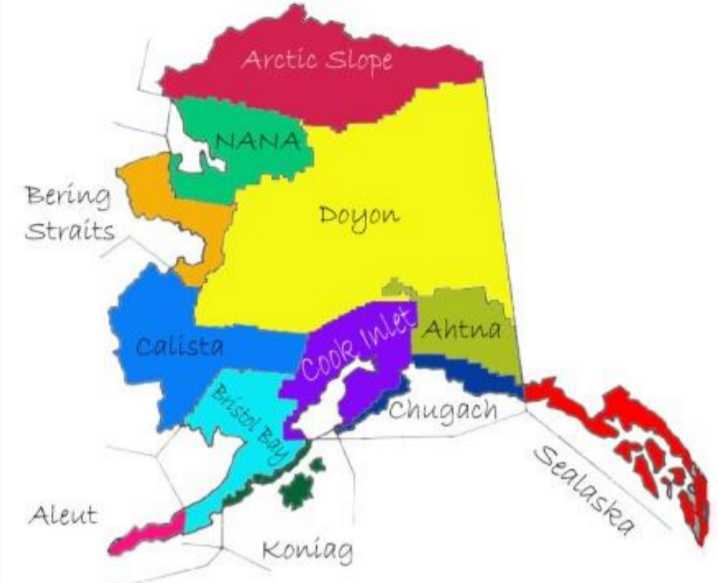Bills will help Cape Fox realize economic benefits promised under ANCSA
Washington, D.C. –U.S. Senators Lisa Murkowski and Dan Sullivan (both R-AK), and Representative Mary Peltola (D-AK), introduced legislation to settle Cape Fox’s remaining land entitlement under the Alaska Native Claims Settlement Act (ANCSA). The measure has the support of a wide coalition of communities in Southeast, Alaska.
The legislation waives an existing statutory requirement that would compel Cape Fox Corporation, an Alaska Native Corporation for the Village of Saxman, to use a portion of its entitlement under ANCSA for remote parcels that have no economic value to the corporation. The bills instead direct the Secretary of the Interior to convey to Cape Fox the surface estate to a 180-acre tract in the Tongass National Forest that was unavailable to the corporation under the original terms of ANCSA.
This tract would allow Cape Fox to consolidate land ownership for a project to construct a road and transmission line to connect the Mahoney Lake site to the Beaver Falls Power Grid. The measure also conveys the subsurface estate to this tract to Sealaska Corporation to avoid the creation of an additional split estate between National Forest System surface lands and Sealaska subsurface lands.
“Cape Fox was put at a disadvantage when it was forced to claim lands under ANCSA that offered no economic value to their village corporation,” said Senator Lisa Murkowski. “It is long past time to right this more than half century injustice. This win-win legislation will not only help Cape Fox capitalize their rightful lands, but address the local energy needs in Ketchikan, Saxman, and Metlakatla.”
“Despite the enormous good ANCSA has done for our state and communities, the law was not perfect,” said Senator Dan Sullivan. “Because of misguided restrictions in the legislation, the Alaska Native people of Saxman and surrounding communities have been denied the use of lands that would provide immense benefits for their residents. Our legislation fixes this historic injustice and will provide residents of Saxman, Metlakatla, and Ketchikan greater economic opportunities and increase their access to alternative energy sources.”
“Consistent access to our traditional lands is an inseparable part of cultural and economic well-being for Alaska Native people,” said Representative Mary Peltola. “For fifty years, this land has been held back from its original inhabitants, and it’s time for that to end. This bill supports the self-determination of Cape Fox shareholders and the economies of nearby communities. Don Young supported this legislation because he knew how important this land was to the past, present, and future of Cape Fox and southern Southeast Alaska, and I’m honored to continue advancing this vital legislation.”
“Cape Fox Corporation (CFC) expresses our sincere gratitude to the entire Alaskan Congressional Delegation and their respective staff for their ongoing support in introducing this important legislation in the United States Senate and in the United States House of Representatives today,” said Chris Luchtefeld, CEO of Cape Fox Corporation. “We are thrilled to complete the CFC Alaska Native Claims Settlement Act lands acquisition after five decades. This modest land selection establishes a seamless link between CFC ANCSA lands, paving the way for a prospective economic corridor that will bring advantages to CFC Shareholders and the entire community of Southern Southeast Alaska.
Cape Fox Corporation is an Alaska Native Village Corporation organized under the Alaska Native Claims Settlement Act for the Native Village of Saxman, which is located near Ketchikan. As with other ANCSA village corporations in Southeast Alaska, Cape Fox was limited to selecting 23,040 acres under Section 16 of ANSCA. All other ANCSA Village Corporations were restricted from making selections within two miles of the boundary of home rule cities. Cape Fox, however, was uniquely affected by the original terms of ANCSA as it was restricted from making selections within six miles of the boundary of the city of Ketchikan to protect its watersheds. As a result of this 6-mile restriction, only the mountainous northeast corner of Cape Fox core township, which is non-productive and of no economic value, was available for selection by the corporation. Cape Fox’s land selections are further limited by the fact that the Annette Island Indian Reservation is within its selection area and unavailable for selection under ANCSA.
[content id=”79272″]








